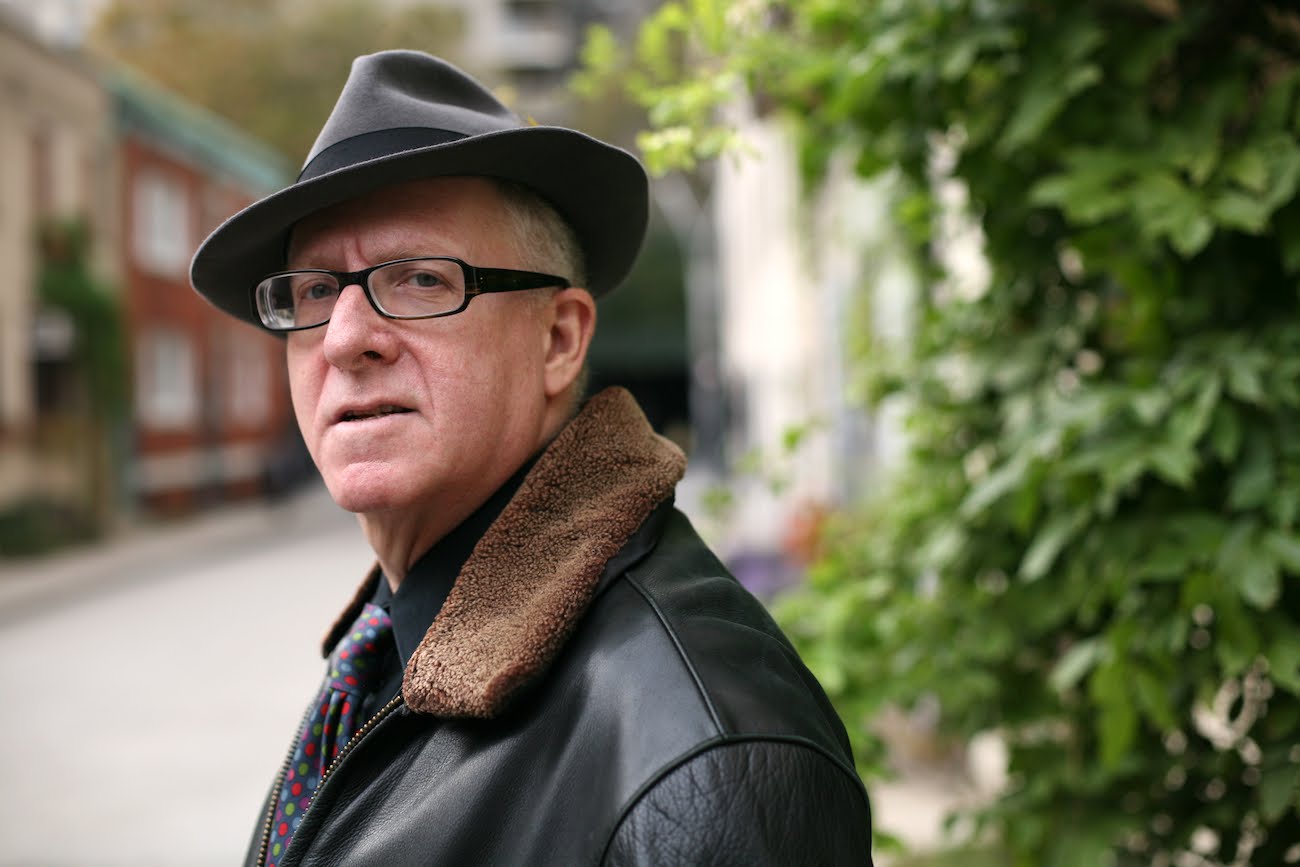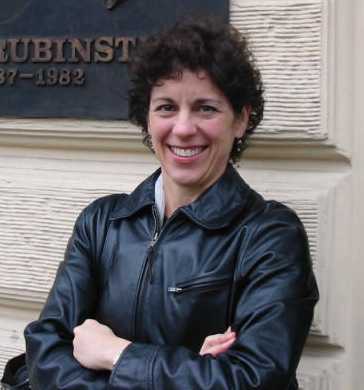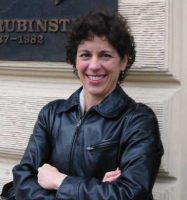 So happy and honored that David Lehman, the de facto dean of American Poetry is this week’s Featured Creative. Unlike so many academics in positions of authority (he’s head of the Poetry MFA division at The New School), Lehman is incredibly disciplined about walking the talk of continuously producing new writing himself and mentoring his students. Lehman has published several volumes of poetry–most recently his New and Selected (Scribner, 2013)–including his accessible, witty, thought-provoking collections that come from his personal challenge of creating a poem a day. He has also edited anthologies of other poetry genres (erotica, prose poems) and produced several acclaimed works of cultural history, the latest being on Frank Sinatra. Unlike so many of his peers, Lehman is no bookish ivory tower loner, but a maestro of creating community. Every year Lehman invites a new guest editor to helm the selections and discover new voices for the annual Best American Poetry series (which he created in 1988). The other half of the Lehman dynamic duo is his wife, Stacey Harwood-Lehman, who curates the award-winning Best American Poetry Blog–and this week’s Ideablog posts. Whether discovering new talent for an anthology, discovering new ways to run a weekly quiz contest, or discovering a new form for a biography of a beloved pop-culture icon, David Lehman proves himself a explorer of the creative realm with an impressive knack for finding gold wherever he goes.
So happy and honored that David Lehman, the de facto dean of American Poetry is this week’s Featured Creative. Unlike so many academics in positions of authority (he’s head of the Poetry MFA division at The New School), Lehman is incredibly disciplined about walking the talk of continuously producing new writing himself and mentoring his students. Lehman has published several volumes of poetry–most recently his New and Selected (Scribner, 2013)–including his accessible, witty, thought-provoking collections that come from his personal challenge of creating a poem a day. He has also edited anthologies of other poetry genres (erotica, prose poems) and produced several acclaimed works of cultural history, the latest being on Frank Sinatra. Unlike so many of his peers, Lehman is no bookish ivory tower loner, but a maestro of creating community. Every year Lehman invites a new guest editor to helm the selections and discover new voices for the annual Best American Poetry series (which he created in 1988). The other half of the Lehman dynamic duo is his wife, Stacey Harwood-Lehman, who curates the award-winning Best American Poetry Blog–and this week’s Ideablog posts. Whether discovering new talent for an anthology, discovering new ways to run a weekly quiz contest, or discovering a new form for a biography of a beloved pop-culture icon, David Lehman proves himself a explorer of the creative realm with an impressive knack for finding gold wherever he goes.
~Victoria C. Rowan, Ideasmyth Creatrix-in-Chief
***
David Lehman loves wordplay. He loves writing poems in both traditional and invented forms. He takes the writing of funny poems very seriously. He loves collaboration with other poets (such relationships produced two books of poetry: Jim and Dave Defeat the Masked Man, a collection of sestinas written with poet Jim Cummins, and Poetry Forum: A Play Poem: A PL’EM, written with poet Judith Hall).
Since May, 2014, with only a brief summer hiatus, David Lehman has been the quizmaster behind “Next Line, Please” a weekly contest to write crowd-sourced poems. The contest is hosted by The American Scholar. Here’s what David says about collaboration and the contest:
I am a big fan of artistic collaboration, which is something that twentieth-century poets and artists, and not just those of the New York School, practiced and prized. In the electronic age, the possibilities of collaborative activity are boundless – and largely untapped. Do you know about the “crowd-sourced” sonnet contest that The American Scholar ran on its web site this spring and summer? Each week there was a different winner, and after fifteen weeks we had a sonnet, with a title, that I think is really quite good. Let me quote it:
Monday
How like a prison is my cubicle,
And yet how far my mind can freely roam:
From gaol to Jerusalem, Hell to home.
Freedom ends or starts with a funeral.
Say what must die inside that I may not
Cast down this die and cross the Rubicon,
Thence to the true hell: the heat in Tucson,
Where drug lords blaze loads of coke, meth, and pot.
Freedom starts or ends with a funeral.
I once watched men with Uzis guard the Pope:
No hope, no hope, no hope, no hope, no hope.
What buzz can cheer this gloomy canticle?
Redemption is a swift revolving door:
A revolution ends the inner war.
***
Since that first sonnet, David has crowd-sourced sestinas, haiku, a cento, an acrostic. Anyone who signs up on the American Scholar site can enter. A new sonnet contest began three weeks ago. Here’s how David kicked it off:
I propose that we kick off the fall season by competing for the best first line of a new crowd-sourced sonnet. There is only one requirement: The line must end with the word uniform, preferably with a comma following it. C’est tout.
Remember that the modern sonneteer enjoys freedoms unknown to Renaissance or Romantic poets. So let’s agree that our sonnet should consist of 14 lines, with the last word of each line specified by the quizmaster. We need not comply with a regular metrical scheme except perhaps to the extent that the phrase–whether in the musical or linguistic sense–tends toward a loose iambic with strategic deviations into dactyls, anapests, trochees, and spondees. Let me worry about it.
As of now, the contest has three lines. Why don’t you head over to the American Scholar “Next Line, Please” contest and enter your best line four?
 ~~~David Lehman was born in New York City. He initiated The Best American Poetry series in 1988 and remains series editor of the annual anthology. He is the author of seven books of poems, most recently New and Selected Poems (Scribner, 2013) and Yeshiva Boys (Scribner, 2009). Among his nonfiction books are The State of the Art: A Chronicle of American Poetry 1988-2014, A Fine Romance: Jewish Songwriters, American Songs (Nextbook, 2009), The Last Avant-Garde: The Making of the New York School of Poets (Anchor, 1999) and The Perfect Murder ( Michigan, 2000). He edited Great American Prose Poems: From Poe to the Present, (Scribner, 2003) and The Best American Erotic Poems (Scribner, 2008). He edited The Oxford Book of American Poetry, a one-volume comprehensive anthology of poems from Anne Bradstreet to the present. He teaches writing and literature in the graduate writing program of the New School in New York City. He lives in New York City and spends summers in Ithaca, New York.
~~~David Lehman was born in New York City. He initiated The Best American Poetry series in 1988 and remains series editor of the annual anthology. He is the author of seven books of poems, most recently New and Selected Poems (Scribner, 2013) and Yeshiva Boys (Scribner, 2009). Among his nonfiction books are The State of the Art: A Chronicle of American Poetry 1988-2014, A Fine Romance: Jewish Songwriters, American Songs (Nextbook, 2009), The Last Avant-Garde: The Making of the New York School of Poets (Anchor, 1999) and The Perfect Murder ( Michigan, 2000). He edited Great American Prose Poems: From Poe to the Present, (Scribner, 2003) and The Best American Erotic Poems (Scribner, 2008). He edited The Oxford Book of American Poetry, a one-volume comprehensive anthology of poems from Anne Bradstreet to the present. He teaches writing and literature in the graduate writing program of the New School in New York City. He lives in New York City and spends summers in Ithaca, New York.
 ~~~Stacey Harwood, Managing Editor of the Best American Poetry Blog, was until recently a policy analyst for the New York State Public Service Commission, the agency that regulates gas, electric, water, and telephone service in New York State. Her poems and essays have been published or are forthcoming in The LA Times, Michigan Quarterly Review, Humor, Lit, Saveur, Tablet, the Wall Street Journal and elsewhere. Paul Muldoon selected her poem Contributors’ Notes for The Best American Poetry 2005. She is the poet laureate of the New York City Greenmarket.
~~~Stacey Harwood, Managing Editor of the Best American Poetry Blog, was until recently a policy analyst for the New York State Public Service Commission, the agency that regulates gas, electric, water, and telephone service in New York State. Her poems and essays have been published or are forthcoming in The LA Times, Michigan Quarterly Review, Humor, Lit, Saveur, Tablet, the Wall Street Journal and elsewhere. Paul Muldoon selected her poem Contributors’ Notes for The Best American Poetry 2005. She is the poet laureate of the New York City Greenmarket.

